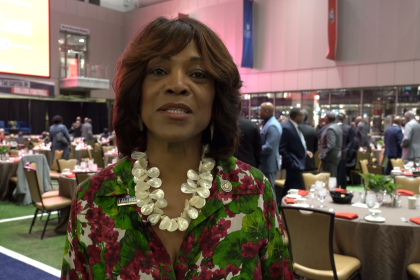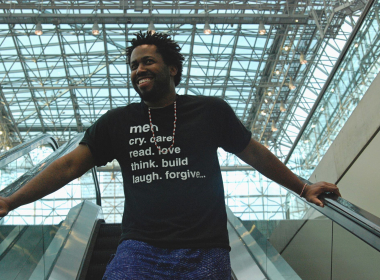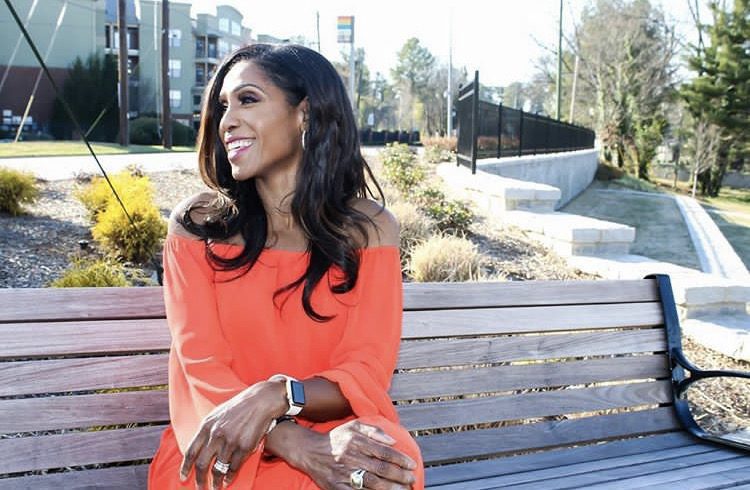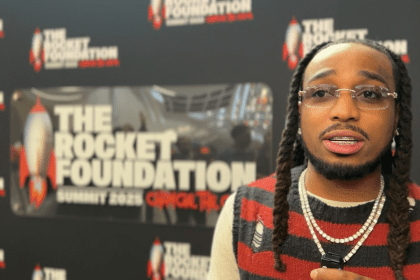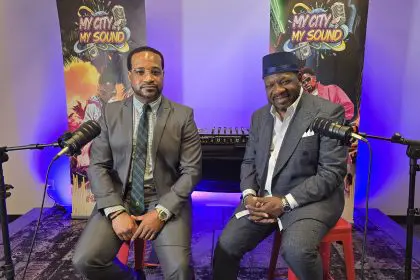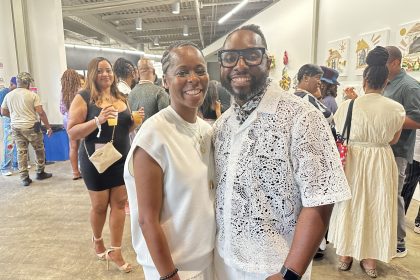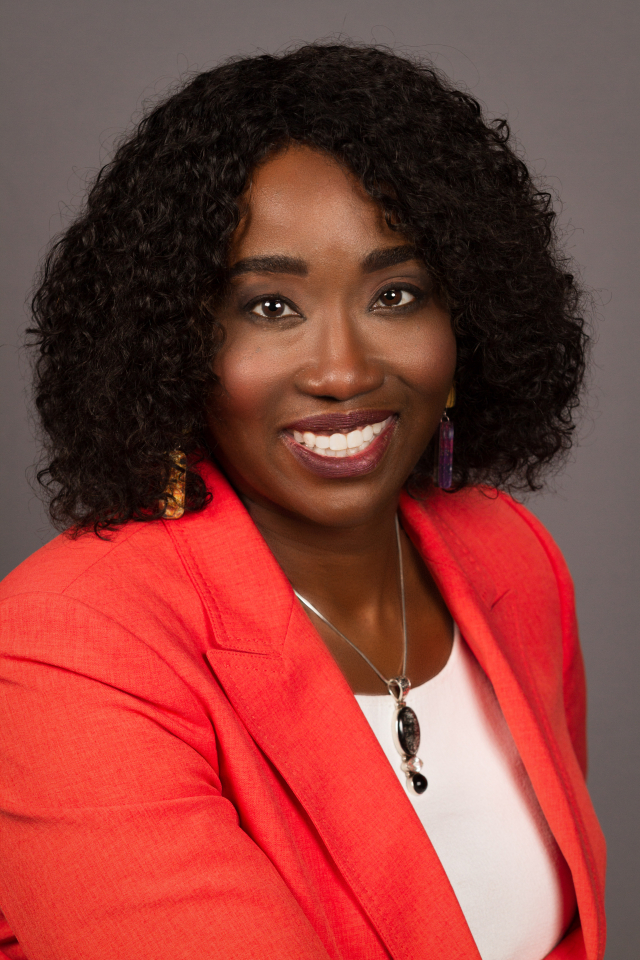
Sylvia Bartley, Ph.D. is the global director of Medtronic Philanthropy and a lifelong seeker of spiritual enlightenment and inner peace. She’s passionate about eliminating economic, health and education disparities in Minnesota. Bartley, who holds a doctorate in neurophysiology, leverages this knowledge to evolve her nontraditional mindfulness practices — living as a spiritual being having a human experience. Bartley is known for connecting people and making things happen. in her last 16 years with Medtronic, beginning in medical device sales and progressing to global marketing, she has convened cross-functional teams across the globe to develop, improve, and disseminate neurosurgical techniques and best practices, primarily for deep brain stimulation therapy.
Since moving to Minneapolis in 2010, she has devoted much of her free time to improving the health, education and economic status of underserved communities. She has assumed board leadership roles for six prominent non-profit organizations including the African American Leadership Forum, The Harvest Network of Schools, Achieve MPLS, and The Black Women’s Health Imperative. She is a recipient of a 2014 Bush Foundation Fellowship, awarded for extraordinary achievement and potential to lead change and strengthen the community. She received the Minneapolis/St. Paul Business Journal’s Diversity in Business Award in 2013 and their Women in Business Award in 2017 for her outstanding contribution to business and education reform in the Twins Cities. In 2014, she was awarded the PM360 Trailblazer Initiative Award for her innovative ideas, outstanding leadership qualities and ability to deliver on results.
She was also awarded the Medtronic’s Star of Excellence Award for her contributions to deep brain stimulation (DBS) and the DBS Excellence Award for her exceptional work and high level of expertise with Medtronic’s DBS.
In April 2017, Bartley published her first book, Turning the Tide: Neuroscience, Spirituality and My Path Toward Emotional Health.
Read what Bartley has to say.
What is your day-to-day like at work?
My day-to-day work varies from regular internal leadership meetings and business reviews to traveling to different states and countries around the world to work on developing and/or executing our philanthropy strategies. This involves partnering with internal and external partners in the field, observing their work, learning about their strategies and impact on underserved communities in countries like Ghana, Senegal and Guatemala. Based on my learning, strategic alignments and collaboration opportunities, I’m leading the effort to develop philanthropy models to help increase health access to underserved populations around the world.
My day-to-day also involves overseeing humanitarian disaster relief work for Puerto Rico and a jobs pilot program for Black residents in neighborhoods with some of the nation’s worst racial disparities in poverty, employment, homeownership, education attainment, health and incarceration. I also spend a good portion of my time meeting with community leaders, non-profit organizations and other philanthropy leaders to learn about their work and potential opportunities to support their work. In addition, I allocate time to meet with my mentees, take part in panel discussion or speaking engagements. I’m the chair of the African American Leadership Forum Board of Directors; I’m on the board of directors for a local and national nonprofit board as well as a member of an advisory council. Hence board work can be part of my day-to-day activity as well — sub-committee, strategic and board meetings.
What inspires you to show up at work every day?
I’m fortunate and honored to have a job that aligns with my personal mission and values. Medtronic is a mission-based, value-driven company. Our values of inclusion and equity start with our CEO and are an integral part of our fabric. It’s easy to get up and go to work every day, put my best foot forward and do my absolute best to live our mission — striving to improve the lives of those we serve. My role is essentially to focus on compassion and humanity for those who do not have access to health care be-it directly through our business partners or indirectly by addressing social determinants of health in underserved communities.
For a majority of my 16-year tenure with Medtronic, I worked directly with functional stereotactic neurosurgeons, neurosurgical teams and patients for a therapy called Medtronic Deep Brain Stimulation (DBS). Having the good fortune to witness the impact DBS has on patients across the globe is humbling and inspiring, to say the least. Most patients use their extra life to give back to others, while some become staunch advocates for patients with similar illnesses, driving change that will increase access to healthcare. This type of impact is seen across all of our Medtronic therapies. An impact, which further inspires me to give my all to make a difference in the lives of those, we serve.
How did you determine your career path?
I use a very structured approach to developing my career goals and path. My approach has evolved over time from creating annual development plans with clear goals and action items to help me develop the skills I need for my next role, to refining this approach over time with guidance from my executive coach, Executive Leadership Programs and my mentors. Essentially, I now use my personal mission statement as a framework to guide what I want to achieve in this lifetime. I create a list of my values with the impact I seek to have in this world, a list of my interests and another list of my skill set and business acumen. I look at these lists holistically and ensure whatever job I do aligns with key components, which I’m not prepared to compromise on, from all three lists. From there I make decisions on the type of role I will pursue and I’m open to what this may look like. Another key component in determining my career path is trusting in universal timing and being open to receiving new opportunities that may look different to what I expect it to look like. Interesting enough most of the roles I have are new roles that have been created with my skill set and strengths in mind.
What industries connect to your career choice?
The industries that connect to my current career choice are medical devices, Philanthropy, Foundations, community non-profit organizations, public sector organizations, science and technology.
Describe the future skill sets that are essential to future business leader and innovators?
I believe the future skills set are communication, both written and oral, being savvy at social media, strategic agility, relationship building with key stakeholders and thought leaders in your field. Having the ability to execute with excellence, being nimble, flexible, financial agility and results driven.
Define innovation methods you apply to your business and life.
I help to create and apply innovate philanthropy models to build sustainable, capacity building programs to help increase access to healthcare and jobs in underserved populations. The models are centered on public, private partnerships, human-centered designs, scalability, skills transfer and social impact measurements.
Describe goal setting methods you use and how do you evaluate your success.
I set my goals to align with my values, the impact I’m would like to achieve and how much value I bring to my field of work. I set clear SMART goals and ensure I review them at a minimum, on a quarterly basis. It’s very important to me that I’m adding value with my work, I’m helping underserved communities and I’m an expert in my field. Hence, my goals have some continual learning aspects to them. I seek advice and check in with my trusting mentors. They keep me honest, on track and are an important part of my accountability system. My success is not only evaluated by achieving the goals I laid out, I consider my method of execution and how I achieved my goals. If I achieve my goals in an inclusive manner, with compassion and humanity, making a positive difference in people’s lives – then I consider that a win.
Who do you consider your peers in your field? How have they supported you? What best practices have they shared?
My peers are those in the Philanthropy and Foundation space, which is a close network of people committed to sharing best practices, forming alliances and partnerships to reach our common goals. It’s a supportive field of practitioners who have shared best practices for addressing community needs, impact measurements, social determinants of health, community healthcare clinic models, public-private partnerships, product donations, sustainable capacity building models and medical skills transfer in underserved regions, amongst other things.
Name your favorite role models for success in two different industries?
One of my favorite industry role models for success is the Starkey Hearing Foundation. The Starkey Hearing Foundation is committed to donating and fitting more than 100,000 hearing aids each year. They’ve successfully developed and are implementing sustainable capacity building models in underserved regions like Senegal and Zambia, transferring skills and building primary care Ear, Nose and Throat Community Healthcare Clinics in such regions with little access to healthcare. They have built strong relationships with physicians, government agencies and other organizations to make this possible. The Starkey Hearing Foundation has [an] excellent staff that is committed to the cause working hard on the ground to ensure the programs are successful — serving thousands of people — changing their lives with the ability to help them hear. It’s amazing to see them in action and a model I would like to replicate in my area of work.
Another personal role model for success is my former executive coach and now dear friend Wrise D. Booker. Wrise is an entrepreneur, the founder and president of Reid Dugger Consulting Group. She is a mentor to leaders, working selflessly to provide executive coaching and training to help build leaders and transforms organizations. She is my top role model because she demonstrates what it’s like to be on purpose. Wrise is brilliant at what she does and a bright light in the lives of those who have the pleasure of knowing her. Wrise also practices mindfulness and brings this aspect into her works, which in my mind is one of the key elements to her and her clients’ success.
Names three books that changed how you saw life and you recommend to others.
Two books, which have changed how I see life, are the Journey of Souls by Michael Newton and The Seat of the Soul by Gary Zukav. Both books are instrumental in my spiritual growth and journey, answering questions about my soul’s journey and evoking thoughts, which are helping me understand how to align with my path and purpose. Both of these books were life-changing for me, opening me up to have ‘sight beyond what I see’, tapping into my multi-senses, seeking solace from within and helping me apply a mindful approach to all aspects of my life. My third book is one I recently wrote called Turning the Tide, Neuroscience, Spirituality and My Path Toward Emotional Health. The process of writing my book was very cathartic, revealing and healing. It opened me up to be vulnerable and explore how the three components of my life, neuroscience, spirituality and my emotional health (depression) is intertwined in a way which helps me evolve along my spiritual path in pursuit of enlightenment truth and wellbeing. All three I highly recommend to your readers.
Describe why lifelong learning is important to you.
It’s simple; my ultimate goal in life is to reach my full potential in alignment with my path and purpose. This may seem like an impossible task, however, to get close to my goal I have to be open to continual learning. It’s a journey, a growing experience, one of evolution over time both in my professional and personal life. The only way I can move forward is by learning concepts, skills and theories that will stretch my mind and help me be open to new possibilities.
Describe the voice of success that you hear in your head.
I hear a voice of gratitude and delight when I’m experiencing inner peace and enjoying each moment without an agenda for the next. The voice appears when I’m adding value, doing the things, which fills my heart and makes a difference in people’s lives for the better. This voice appears when I’m in gratitude; appreciating all the wondrous things the universe has to offer, trusting all is in divine order – always. It’s a warm voice that caresses my heart and soul. A voice I don’t hear often enough.
Community success based on what you do in the community means what to you.
For me, community success means the elimination of the disparities so prevalent in underserved communities, especially communities of color around the world. Success to me means everyone has access to high-quality healthcare, education, jobs, housing, transportation and healthy foods. Success means a judicial system that is fair and just for all citizens, where all communities can thrive and live safely in places they choose to live, work and play.
What role does technology play in your daily life?
An important one, especially in the medical device, space, is please see below.
What software and technology tools have made the biggest difference in your life?
Medical technology has made a huge impact on my personal and professional life. As a young child having open-heart surgery to close a hole in my heart would not have been possible without the advancements in medical technology. My son had the same condition when he was a toddler and due to further advances and innovation in medical technology, his procedure was less invasive, using a vascular approach to close the hole in his heart. Working in the medical device space for the largest stand-alone medical device company in the world I have seen firsthand how advances in medical technology in the cardiac, neuro and surgical technology space have impacted the lives of the patients we serve. The stories of our patients are heartwarming and each one has a very positive impact on my life making a difference in an unimaginable way.
Define your personal culture:
My personal culture is one driven by my values of compassion and humanity. It’s a culture of integrity, honesty and kindness toward others. I try to create a culture that motivates others and myself to follow our passions and align with our purpose. A culture where it’s OK to be you and do what warms your heart and fills your soul. A culture that allows me to stay connected to the universe through prayer and meditation and function on the premise that there is a power greater than me, with a plan that is bigger than me. It allows me to be my best self in both my professional and personal life. It attracts loving, kindness and beautiful people in my life.
How does music impact and influence you?
I love music. Music can stir my soul and fill my heart with joy and inspiration. In particular, certain old-school R&B, neo-soul and gospel music has this impact on me. I love listening to live music, especially here in the Twin Cities where we’re blessed to have a hotbed of local talent. One of my most favorite things to do is to listen to live music after a long week during the weekend. It’s food for my soul. I always listen to my music in the gym. I don’t think I can exercise without it now. It keeps me going, helps me empty my mind and prepares me for meditation.
Describe your favorite vacation spot.
I don’t have one favorite vacation spot. I enjoy vacations in places close to the water that are peaceful, quiet and have access to a wide variety of healthy foods, outdoor activities, mountains and luxury accommodation. Places like Udud in Bali, St. Lucia, Montego Bay, Jamaica and by Lake Geneva in small villages called Cully and Montreux.
If you could change one thing about the world, what would it be?
I would change the way we treat each other. I would eliminate all violence and acts of hatred towards people, ensuring everyone sees each other as human beings, treating people with compassion and humanity.
If you could change one thing about your self, what would it be?
I would like to have more energy and greater capacity to drive more impactful work focused on improving the social determinants of health for underserved populations of color, especially for the black community in the Twin Cities.

